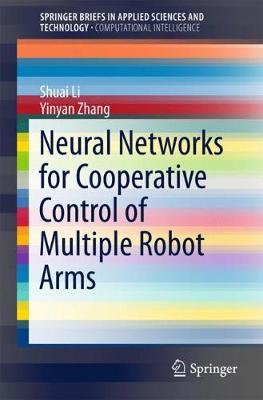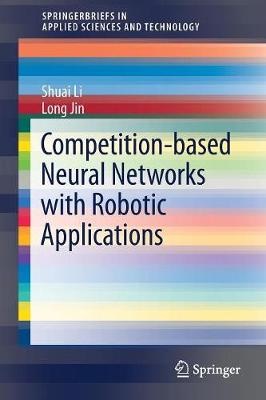SpringerBriefs in Applied Sciences and Technology
2 total works
Neural Networks for Cooperative Control of Multiple Robot Arms
by Shuai Li and Yinyan Zhang
This is the first book to focus on solving cooperative control problems of multiple robot arms using different centralized or distributed neural network models, presenting methods and algorithms together with the corresponding theoretical analysis and simulated examples. It is intended for graduate students and academic and industrial researchers in the field of control, robotics, neural networks, simulation and modelling.
Competition-Based Neural Networks with Robotic Applications
by Shuai Li and Long Jin
Focused on solving competition-based problems, this book designs, proposes, develops, analyzes and simulates various neural network models depicted in centralized and distributed manners. Specifically, it defines four different classes of centralized models for investigating the resultant competition in a group of multiple agents. With regard to distributed competition with limited communication among agents, the book presents the first distributed WTA (Winners Take All) protocol, which it subsequently extends to the distributed coordination control of multiple robots.
Illustrations, tables, and various simulative examples, as well as a healthy mix of plain and professional language, are used to explain the concepts and complex principles involved. Thus, the book provides readers in neurocomputing and robotics with a deeper understanding of the neural network approach to competition-based problem-solving, offers them an accessible introduction to modeling technology and the distributed coordination control of redundant robots, and equips them to use these technologies and approaches to solve concrete scientific and engineering problems.

